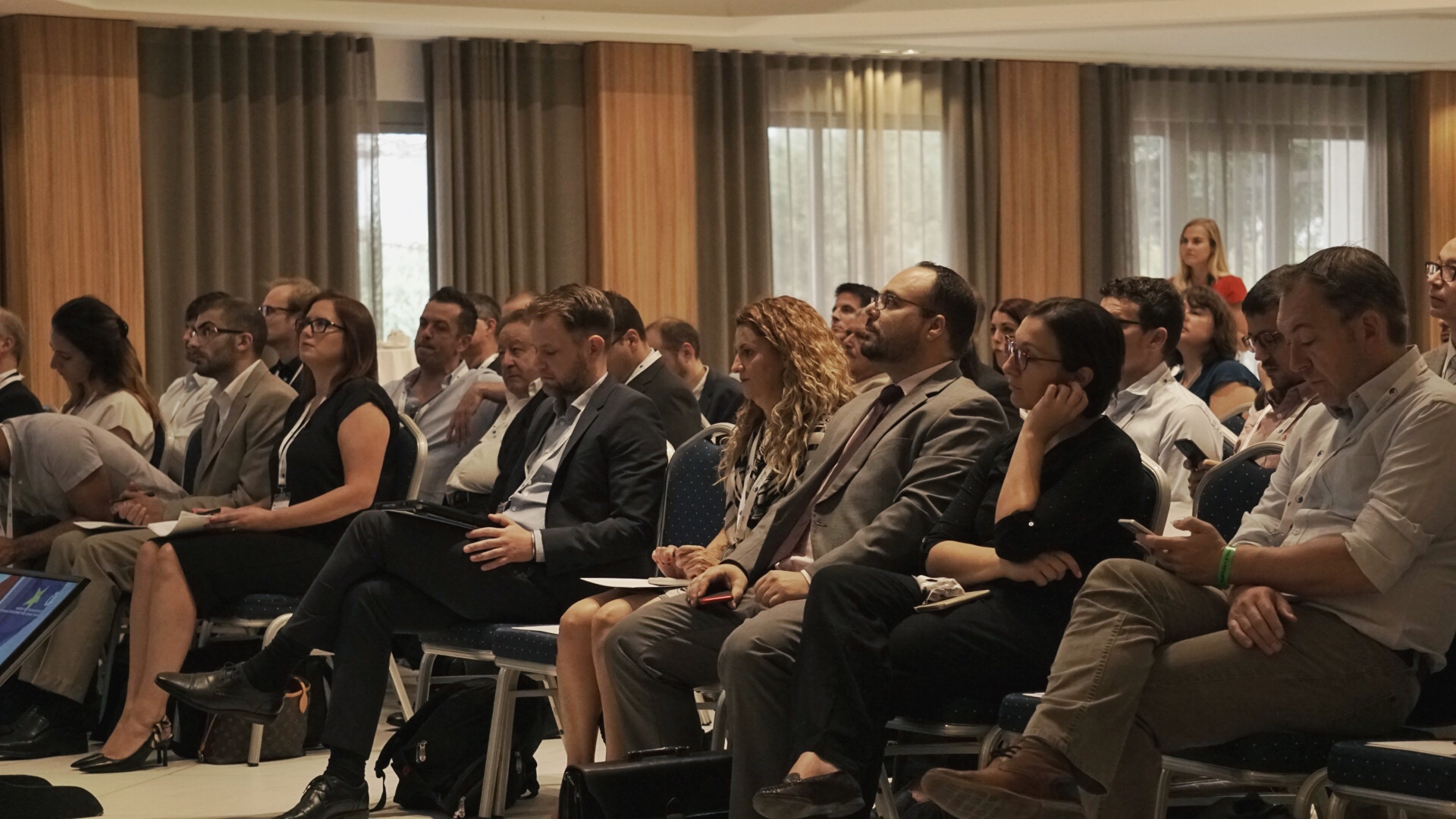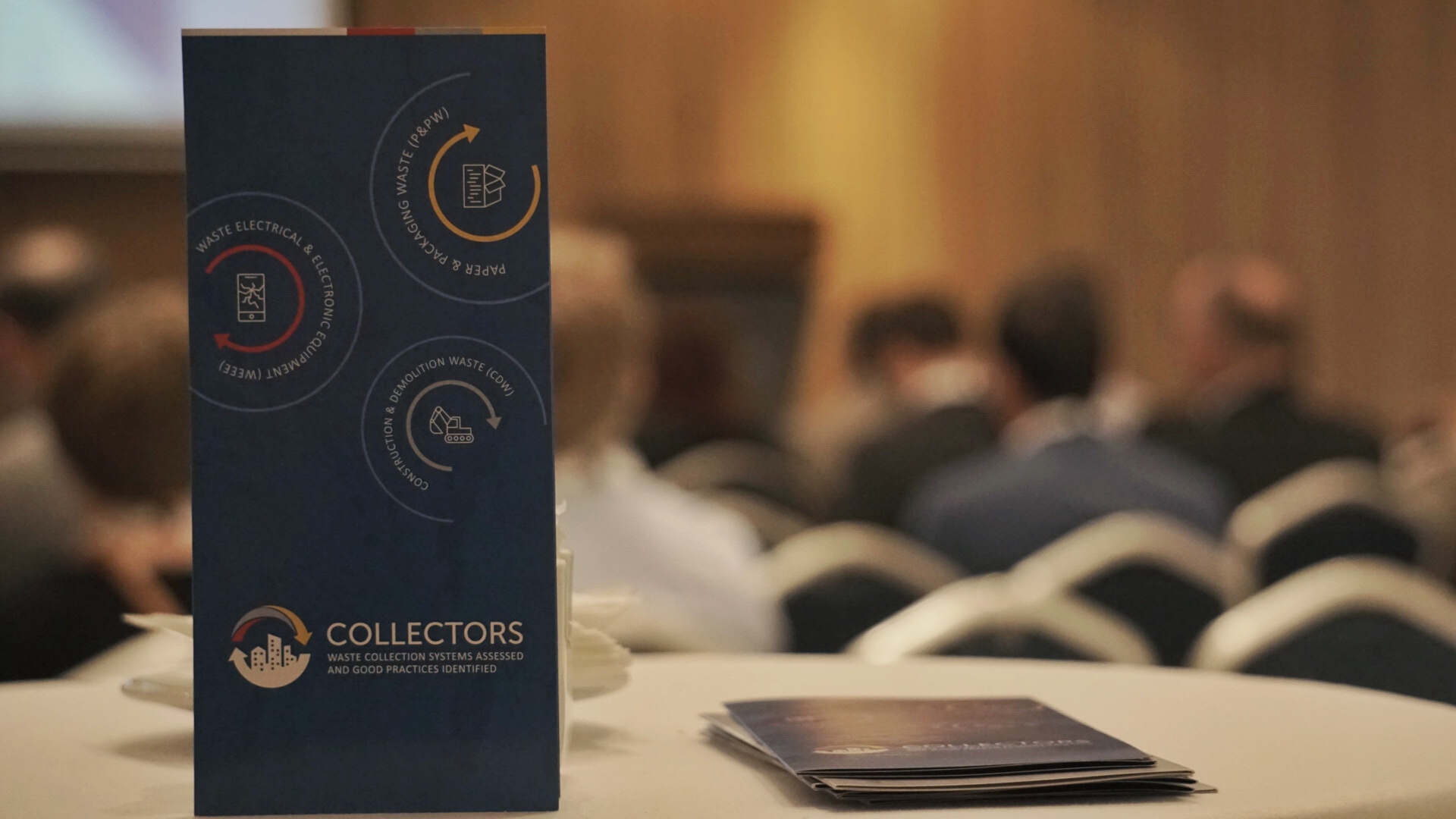28 September 2018
The project is advancing towards its objective of studying in detail 12 waste management systems as “good practice examples”
Valetta, Malta – 10 months after its launch, the European Horizon 2020 project COLLECTORS has already gathered a database of 242 waste collection systems operating in Europe, focusing on Paper and Packaging Waste (PPW), Waste Electrical and Electronic Equipment (WEEE) and Construction and Demolition Waste (CDW). From these, a group of 12 well-performing systems representing various local contexts are being selected by the project consortium, meeting from 25 to 28 September in Malta, to be studied further during the project as “good practice examples”. Hosted by Waste Serv Malta, the public waste operator of Malta, the event also included site visits and a public conference on waste management in islands and remote areas.
First steps towards the identification of good practices
 The COLLECTORS project is reaching a new stage with the first steps of the selection of 12 case studies to be studied in the coming months. Members of COLLECTORS Regional Working Group, composed of 12 experts from various European local and regional authorities, were presented the information that has been collected by the project consortium concerning 242 waste collection systems in 25 European countries.
The COLLECTORS project is reaching a new stage with the first steps of the selection of 12 case studies to be studied in the coming months. Members of COLLECTORS Regional Working Group, composed of 12 experts from various European local and regional authorities, were presented the information that has been collected by the project consortium concerning 242 waste collection systems in 25 European countries.
They also looked at different criteria describing the performance of the systems (such as capture rate, availability of bring points, etc.), and some general criteria that describe the characteristics of the regions (such as GDP per inhabitant, remoteness of the area and population density). Using these criteria, the Regional Working Group was then tasked to assess and rank the performances and relevance of each identified waste management system. Structured group decision-making processes enabled to identify a pool of 24 case studies that will lead to the final selection of 5 PPW systems, 5 WEEE systems and 2 CDW systems for further analyses, reflecting well-performing systems in specific contexts (such as touristic areas, territories with low GDP, etc.).
Waste management in islands and remote areas: solutions and challenges
 The Regional working group workshops were accompanied by a public conference focusing on waste management in islands and remote areas. Opened by Hon. Herrera, Malta Environment Minister who detailed Malta’s new waste strategy and the generalisation of selective collection of organic waste on the island, the conference included experts’ point of view and two round tables.
The Regional working group workshops were accompanied by a public conference focusing on waste management in islands and remote areas. Opened by Hon. Herrera, Malta Environment Minister who detailed Malta’s new waste strategy and the generalisation of selective collection of organic waste on the island, the conference included experts’ point of view and two round tables.
Participants learnt about practical trials to increase the efficiency of WEEE collection, presented by Sven Grieger, European Advanced Recycling Network. They also got familiar with the concept of “know-as-you-throw” introduced by Michele Giavini from ARS Ambiente, as a complement to “pay-as-you-throw”, with the example of Seveso and the H2020 Waste4think project. During the first round table, Waste Serv Malta, the Balearic Islands and Epirus Region exchanged on their challenges regarding waste management but also shared solutions that they have successfully implemented. Indeed, projects like Interreg Med BLUEISLANDS are tackling directly the issues, especially by monitoring the impact of littering on beaches during touristic seasons. The second round table gave the floor to the cities of Zagreb, Warsaw, Stavanger and Vilnius as they are re-shaping their waste management systems to boost performances.
COLLECTORS in brief
The COLLECTORS project aims to identify and highlight existing good practices of waste collection and sorting in relation to three waste streams: paper and packaging waste, waste electrical and electronic equipment, and construction and demolition waste. COLLECTORS brings together nine partners including consultancies, networks, universities and research institutes.
In addition, the COLLECTORS project will work with external stakeholders to ensure a participatory approach, to validate project activities and results, and to ensure the relevance of project outputs: local and regional authorities managing waste, citizens, and other stakeholders of the recycling value chain.
CONTACT
Jean-Benoît Bel
ACR+
jbb@acrplus.org